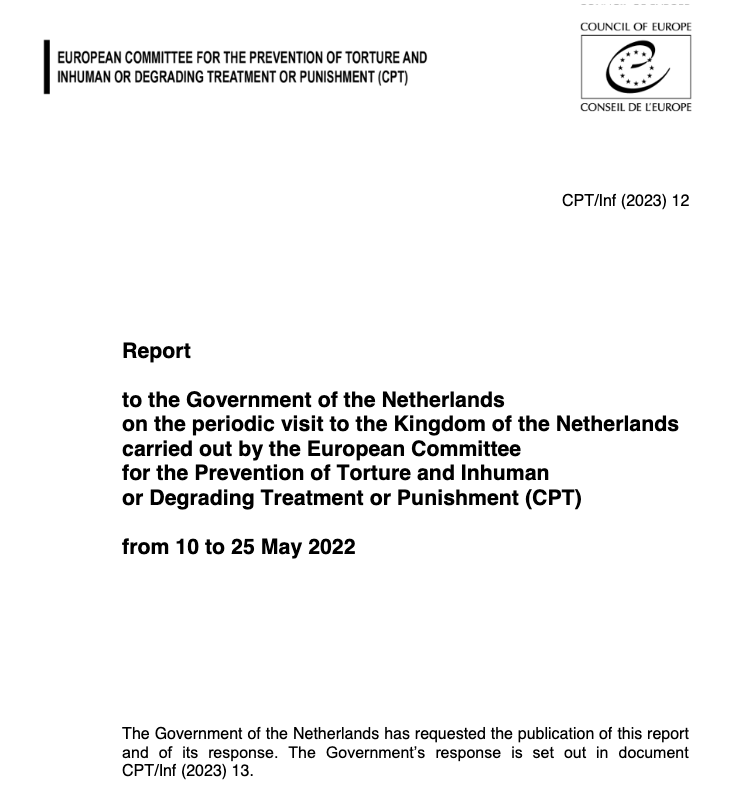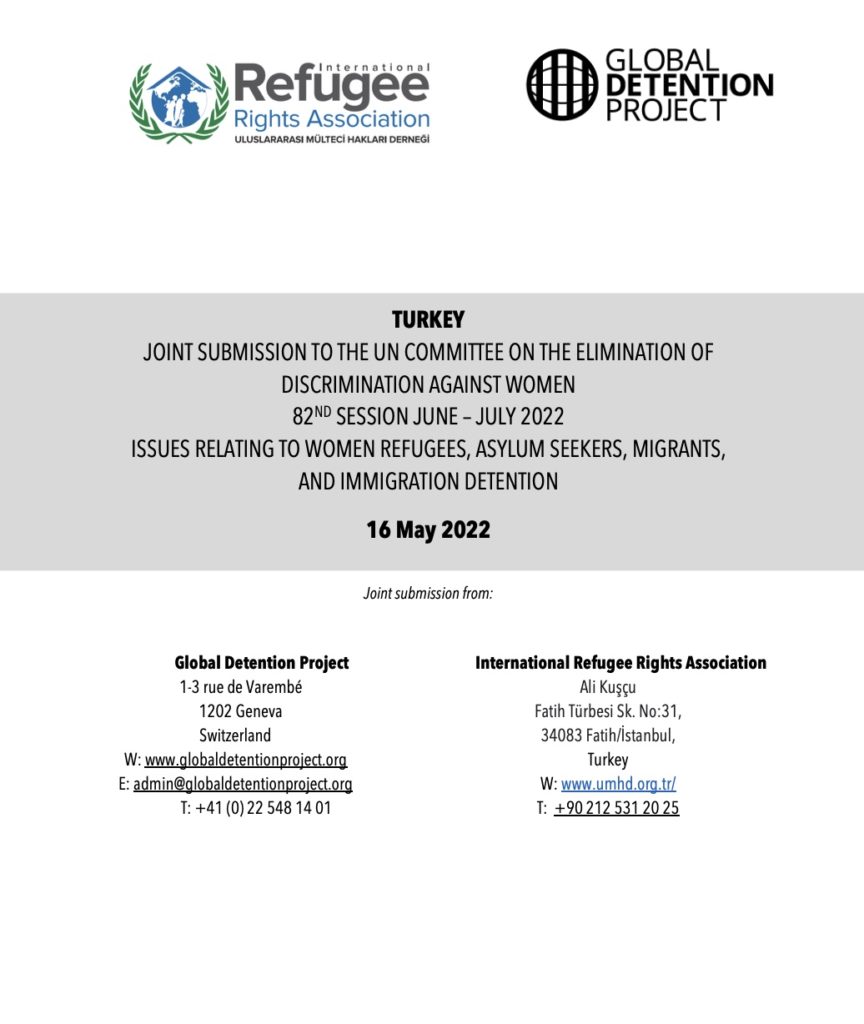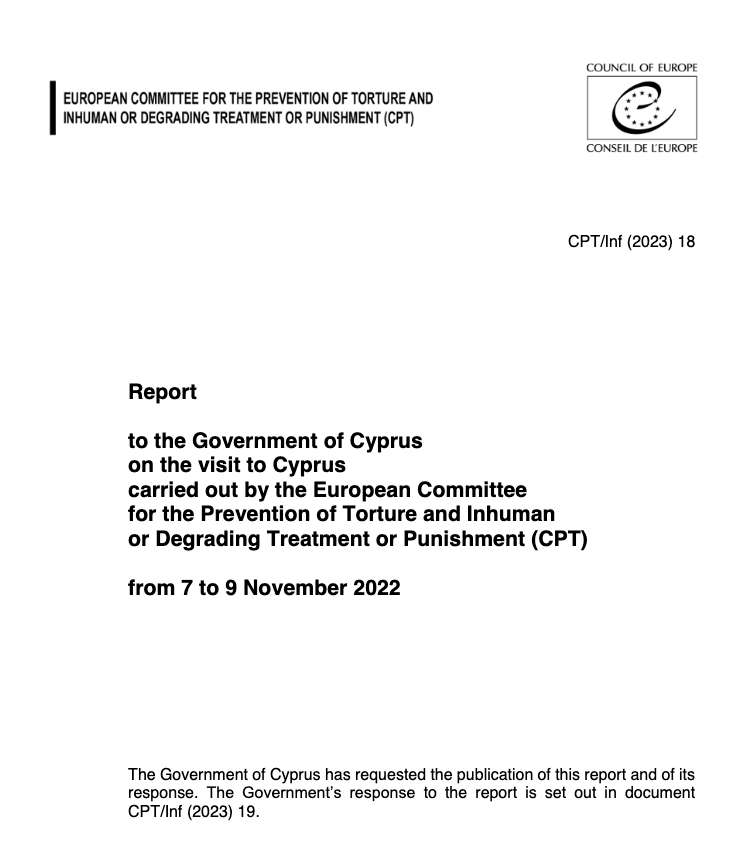Transfer to Larnaca International Airport; (Read full CPT report) 40. Transport of detained foreign nationals on the airport for removal purposes is governed by Police Regulation 5/4 of 4 February 2021 “on the transport of convicts”. Amongst other things, the Regulation stipulates that, as a rule, handcuffs must be used, that escorting police officers shall […]
Immigration detention
BOTSWANA: Submission to the UN Working Group on Arbitrary Detention
Botswana has both administrative migration-related detention measures, including for the detention of refugees, as well as criminal penalties that can include lengthy imprisonment for migration offenses. These measures violate norms promoted by the Working Group, which says that migration infractions must not be subject to criminal penalties and there should be a prohibition on the detention of refugees, asylum seekers, and children. […]

UNITED ARAB EMIRATES: Submission to the Committee against Torture
Detained non-citizens in the UAE frequently face arbitrary arrests, poor conditions of detention, an inability to access information about their cases, and deportation without recourse to legal remedies. Their treatment may amount to cruel, inhuman, or degrading treatment or punishment, prohibited by Article 16 of the UN Convention against Torture. […]

Immigration detention In Netherlands ( from report of the European Committee for the Prevention of Torture 2022 visit to Netherlands)
1. Preliminary remarks ; (Read full CPT report) 49. In the course of the visit, the delegation visited all three closed immigration detention facilities in the Netherlands: it carried out follow-up visits to Rotterdam43 and Schiphol Detention Centres (DCs), and it conducted a first-time visit to the Closed Family Facility (Gesloten Gezinsvoorziening – GGV) at […]

Immigration detention in Latvia (from report of the European Committee for the Prevention of Torture 2022 visit to Latvia)
a. preliminary remarks; (Read full CPT report) 28. One of the objectives of the 2022 visit was to examine the situation of foreign nationalsdetained under aliens legislation. For this purpose, the delegation visited the country’s two dedicateddetention facilities for foreign nationals, namely Daugavpils Immigration Detention Centre and Mucenieki Immigration Detention Centre.12 Both centres are managed […]

TURKEY: Joint Submission to the Committee on the Elimination of Discrimination against Women
As Turkey has stepped up immigration controls there have been increasing reports of human rights abuses in detention centres and in other sites along its borders. Women have been subjected to abuses and gender-specific violations, including reports of rape of refugee women in some removal centres as well as humiliating strip searches. […]

Immigration Detention amidst War: The Case of Ukraine’s Volyn Detention Centre
In early March, shortly into Russia’s war on Ukraine, the Global Detention Project (GDP) began receiving email messages and videos from individuals claiming to know people who remained trapped in an immigration detention centre inside Ukraine, even as the war approached. … […]

UNIVERSAL PERIODIC REVIEW: Immigration Detention in India, Morocco, Poland, South Africa
In March, the GDP worked with partners in four countries—Poland, India, South Africa, and Morocco—to prepare submissions for the 41st Session of the Human Rights Council Universal Periodic Review (UPR). […]

Foreign nationals held under aliens’ legislation (from report of the European Committee for the Prevention of Torture 2022 visit to Poland)
1. Preliminary remarks; (Read full CPT report) 25. The border crisis between the European Union and Belarus, which had begun in the summer of 2021, saw thousands of people, mostly from the Middle East, trying to enter the European Union through Latvia, Lithuania, and Poland from neighbouring Belarus. In response to an unprecedented increase in […]

SOUTH AFRICA: Joint Submission to the Universal Periodic Review
For the 4th cycle UPR review of South Africa, the GDP teamed up with Lawyers for Human Rights to highlight numerous shortcomings in South Africa’s treatment of refugees and migrants. Despite important progress that has been made in implementing judicial control over immigration detention operations, the submission highlights South Africa’s failure to improve poor detention conditions and prevent abuses in the Lindela privately-run immigration detention centre. […]




